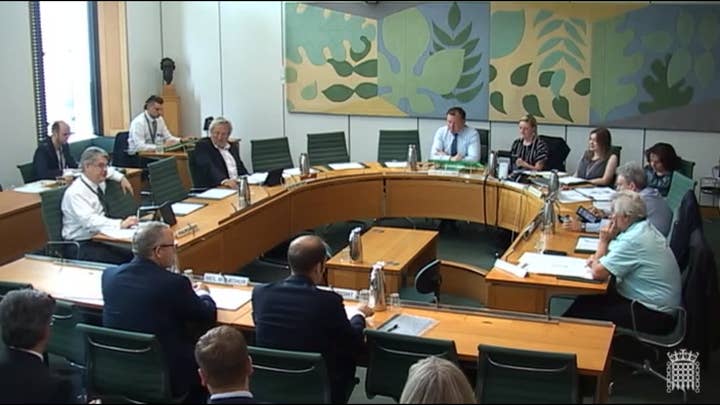British Gambling Commission: Industry should be "proactively dealing" with skin betting
Loot boxes still aren't gambling, says BGC, but concerns raised over similarities and companies that fail to police secondary markets
A parliamentary inquiry has been told that large gaming companies should be doing more to prevent players selling on in-game items from loot boxes.
Speaking at the latest Department of Media, Culture, and Sport inquiry into immersive and addictive technologies, British Gambling Commission (BGC) programme director Brad Enright laid-out his reservations around loot boxes and skin betting. "There is concern about the similarities with loot boxes and gambling and the chance-based mechanics, the mixture of expenditure, inviting rapid continual transactions," he said.
"In our opinion, the video game industry has in effect left themselves open to these sorts of challenges because of the manner in which they presented these games, created these for commercial purposes and then perhaps have not heeded entirely the guidance that we have issued in some circumstances."
Despite "significant concerns" around the murky world of loot boxes, BGC chief executive Neil McArthur reiterated the commission's stance on the matter: loot boxes are not considered gambling under the current definition of UK law.
"Our position is they could be a form of gambling, but it depends on the circumstances in which they are offered," he said.
"Counter-Strike: Global Offensive is probably the game we've received the most complaints about"
Brad Enright, BGC programme director
While the distinction is made around whether the prize is "equivalent to money," McArthur noted there are circumstances where loot boxes would fall within the definition of gambling.
"Where we have drawn the line is on the ability to turn [loot box contents] back into money through some mechanism," said McArthur.
"If it is possible through secondary markets or through a market offered during the game, we can see that that would turn it into gambling. We would take action in those circumstances and we have done."
Prior to this week's oral evidence session, the BGC submitted written evidence to the committee, which said: "We are concerned that there are large video game companies who are failing to proactively enforce their own platforms term of use to prevent in-game items being readily exchanged for cash."
Committee chair Damian Collins MP asked if the BGC representatives could name any particular companies that fail to enforce their own terms of service in this way.
"Counter-Strike: Global Offensive is probably the game we've received the most complaints about... We have had dialogue with Valve," said Enright.
"[When] we have drawn its attention to particular games where we have evidence of British consumers, including children, gambling on those sites, it has closed them down.
"We also appreciate their decision to highlight the scourge of unlicensed and unauthorised secondary in-game item trading markets"
Jo Twist, UKIE CEO
"What we have said is that that is not a sustainable approach. We cannot be monitoring the internet every day looking for skins gambling website or exchange sites.
"[Valve] has created this situation, perhaps not intentionally, but the situation has been created by the commercial model it has built and done very well out of, therefore we think there is an onus and responsibility on it... It should be proactively dealing with this."
As it currently stands then, FIFA loot boxes do not constitute gambling in the UK. While the BGC is aware of "ad hoc examples" of real money gambling through secondary sites, Enright said he was satisfied there is "sufficient, ongoing proactive effort by EA" to prevent players gambling through these sites.
"That is where we are with EA, but it is a watching brief," said Enright. "If we were unsatisfied that it was taking measures or we got lots of reports that there were lots of secondary markets and they were becoming more sustainable and more sophisticated, then obviously that view would change."
In a statement issued to GamesIndustry.biz following the inquiry, UKIE CEO Jo Twist thanked the BGC for its "continued clarity over the matter."
"We also appreciate their decision to highlight the scourge of unlicensed and unauthorised secondary in-game item trading markets that abuse the terms and conditions of games," she said.
"We fully agree with the Gambling Commission's recommendation that all video game companies do what they reasonably can to ensure they enforce their terms of service as stringently as possible."
The inquiry took place earlier this week, shortly before Rockstar released a patch adding casinos to Grand Theft Auto V, in which players can spend real money.

